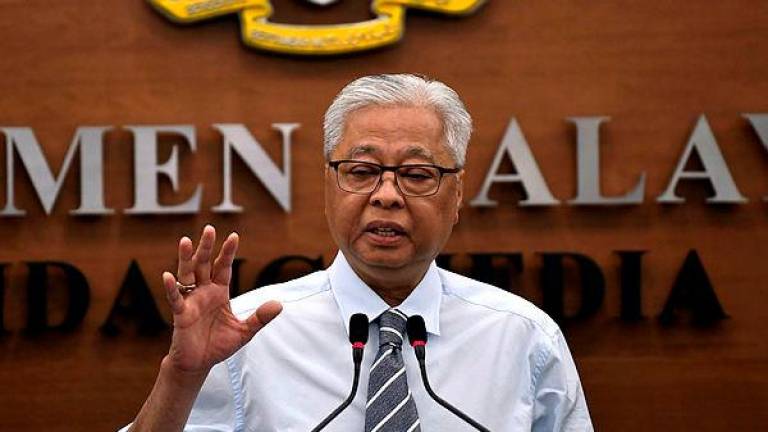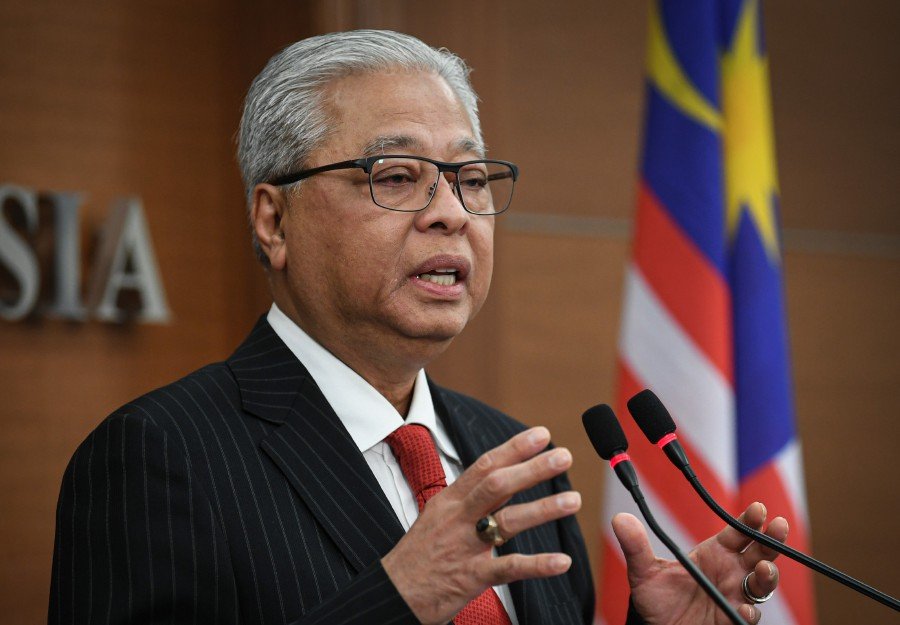Ismail Sabri has announced there will be no more second chances or warnings given; violators will now face compounds or jail.
As health authorities expressed alarm at the recent rise in active cases and Covid-19 clusters around the country, the government is considering making masks mandatory in public, with fines or jail time for those who violate such an ordinance. (Update: They did it, with effect from August 1.)
Additionally, Senior Minister Datuk Seri Ismail Sabri Yaakob said at a press conference on July 21 that the police would be stepping up action taken against those who flout the Recovery Movement Control Order (RMCO), with no more warnings, noting, “Many people seem to assume that there are no laws in place, as if the MCO has ended, so the police have made a decision that there will be no more warnings and advice. They will take stern action on anyone who violates the MCO.”

On Monday (July 20) alone, police detained 80 individuals for such violations. Of these, 20 were remanded, four released on police bail, and another 56 were issued citations.
He added that 37 people were detained while at pubs or nightclubs, while 43 were detained for activities which made it difficult or impossible to maintain proper social distancing.
Ismail pointed out that nightclubs (distinct from bars and pubs) were still in the list of activities not allowed under the recovery MCO and added that the local authorities would increase enforcement activities on nightclubs, including suspending their licences.
Those choosing to go to pubs, bars, and karaoke clubs, meanwhile, would be well-advised to adhere to social distancing requirements, as these establishments are increasingly being targeted for enforcement.
New Quarantine Rules
With effect from July 24, the option to self-quarantine at home for Malaysians returning from overseas will no longer exist. The new rule also applies to all foreigners entering the country, and has been implemented as a result of too many Malaysians abusing the home quarantine requirements.
In a July 21 press conference, Ismail Sabri stated, “We view very seriously these incidents of violations of our standard operating procedures (SOPs), which may have led to the spread of the Covid-19 infection. As such, we have agreed that beginning July 24 (Friday), all Malaysians returning from abroad, as well as foreigners entering the country, will be quarantined in centres identified by the government.
“There will be no more home quarantines. Isolation will be done in centres, just like pre-recovery movement control order (RMCO) days,” he added.

Ismail Sabri further noted that each individual will have to bear the full cost of the quarantine at the respective centres, either in public training institutions or in hotels that will be identified and gazetted by the government soon. The daily cost is expected to be RM150 per day and higher, similar to rates during the pre-RMCO period.
He also said that medical tourists will be allowed to enter the country, but must undergo Covid-19 screening before departure, noting that medical tourists from green zone countries (Brunei, Singapore, South Korea, Japan, Australia, and New Zealand) will be allowed to enter Malaysia via commercial flights to get medical treatment in the country.
“However, the permission to cross-border (travel) will be based on a discussion between the Foreign Ministry and the countries involved. Upon arrival, the tourists will be immediately brought to the hospital for treatment,” he stated. Only the required hospital treatment is allowed; no leisure travelling in the country is permitted for medical tourists.
The announcement was made a day after a picture of a local woman, seen wearing a Covid-19 “person under surveillance” pink wristband and having a meal in an Ipoh restaurant, went viral on social media. The woman was later found to be positive for Covid-19.

Another Malaysian was found defying the home quarantine while at a kopitiam in Sri Hartamas. And in another worrying case, a quarantine band was found discarded on the ground within minutes of being issued.
Ismail Sabri said such actions clearly violated government SOPs, and that such selfish, stubborn attitudes would not be tolerated.

Those wearing the wristband are meant to be under strict home quarantine order for 14 days, and are definitely not allowed to be in public areas. Ideally, they’re not meant to even leave their room to mix with other family members. The pink wristband may only be removed by healthcare authorities following the completion of the quarantine period and a negative Covid-19 test.
Malaysia’s Terrific Response to the Pandemic
Though it may seem like an overreaction to be alarmed by 15 daily new cases, or to drop the hammer on people just for enjoying time with friends at a bar, or to rescind the home quarantine privilege because just a few people abused that trust, the fact is, Malaysia has done a remarkably good job of managing the coronavirus crisis. In a pandemic, “overreaction” is actually the correct course of action, enabling communities to get out in front of the pandemic, rather than just react to it.
In a pandemic, if you simply react to the data as it comes in, you’re too late. Countries that have had success in combatting the spread of the virus take proactive steps, and even seem to be overreacting sometimes. (Vietnam’s stellar results, for example, come from just such “overreaction.”) Malaysia’s government has stuck to a similar approach, and for this, residents here should be grateful that health officials and government authorities have taken the coronavirus outbreak very seriously, acting both prudently and proactively. For the most part, locals here seem to agree, with a YouGov survey in June showing a solid net positive rating of 87% for how Malaysians view their government’s handling of the pandemic.
And while many resident expats have admittedly been troubled by the government’s refusal to allow those expats holding valid work, resident, or MM2H visas to easily return to their homes in Malaysia, nearly all expats we’ve talked with agree that the country has done a very good job of managing an unprecedented global health crisis, and deserves much more international recognition than it’s received.
"ExpatGo welcomes and encourages comments, input, and divergent opinions. However, we kindly request that you use suitable language in your comments, and refrain from any sort of personal attack, hate speech, or disparaging rhetoric. Comments not in line with this are subject to removal from the site. "























